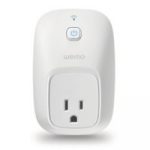Home Automation Cost Guide & Contractors Quotes 2024
If you are looking into home automation systems for your house, check our home automation cost guide and request up to 4 free contractor quotes.
Also referred to as smart home, home automation is a process of linking all the basic functions of your home to a central system which is then linked and controlled by a device such as a tablet, smartphone, a touchscreen key panel or a keypad. It ensures safety, functionality, comfort, and security in your home. Home automation enables you to perform the basic functions of your home remotely and automatically even without your physical presence in the house. For example, if you are away on a trip and want to check if your lights are on, your home automation system will allow to check out on anything in your home, regardless of your location.
Home automation, an idea that was once perceived as too expensive or too complex, is rapidly picking up among a majority of homeowners. The idea which was once thought to be too overwhelming is now becoming a must-have in almost every household. The use of a home automation system has now become attainable and more realistic to homeowners who want to control and monitor their homes. In fact, the interest for home automation system has become achievable due to the concept of portable Wi-Fi devices, tablets, and smartphones. Since almost everyone has embraced these portable devices, it’s only natural that a lot of people are now warming up the benefits of having automated systems for their homes.
How Home Automation Works
If you are a homeowner and the idea of home automation has captured your interest, but you are not sure about how it works, worry non more as this guide will outline for you the basic concept of how this amazing technology works. Home automation is a networked system that is synched with controllable devices that operate together to make your home safe, comfortable and efficient. They are customized to your home’s needs and functions. The system allows you to command and operate basic functions through a smartphone, tablet or a remote control connected to the automation system.
Let’s put in simple words; home automation gives you the freedom to operate and control technological devices in your home remotely from a single portable device such as smartphone from any location, whether you are at your home or far away from your home. In home automation, everything such as electrical outlets, lights, appliances, heating and cooling systems, sprinklers, swimming pool controls are connected to a network that can be remotely controlled through a single portable device such as your smartphone or tablet. Home automation also includes your security details such as your alarm system, windows, doors, locks, surveillance cameras, smoke detectors, and basically any type of sensors; all these can be linked to your home automation system.
The best thing about home automation is the fact your portable devices can easily be linked to a local area network through Wi-Fi or Ethernet. This means you will be in a position to run your home better and more conveniently through your smartphone.
For example, you can picture this very familiar scenario that has probably happened to you at one point in your busy schedule. You get to your workplace. But then you start debating with yourself if you actually locked the front door or you left it unlocked. If you are not among the homeowners who have the home automation technology, you may end up rushing back home to confirm if the door is locked or not.
But if your home is automated, you will simply check the status of your front door from your tablet or smartphone. In fact, you will be able to confirm and rectify anything amiss in your house through your smartphone. You must agree that the concept of home automation is something beyond a fantasy, it’s convenient, it’s cool, its every homeowner’s dream. Home automation gives you endless possibilities of scheduling your home’s basic functions and creative solutions that simply make your life manageable and better.
What Can Home Automation Do For You?
Home automation system comes with endless functions for you. You can customize the system to suit your needs and add the automation services that will be tailored to the functions of your home. You can create a list of ideas of the common things that you would want to run whether you at your home or not. For example, you can program your home automation system to do the following tasks:
✓ Open and close your home’s blinds especially in the living room depending on the time of the day or the amount of daylight
✓ Alert you when someone rings your bell
✓ Automatically unlock the door for your family members when they get home
✓ Drop your home’s temperatures when everyone retires to bed and readjust back when the first person in your home wakes up in the morning
✓ Adjust you homes temperatures when everyone leaves the house to ensure that there is no wastage of energy
✓ Your refrigerator runs your home’s inventory and notifies you when you run out of some requirements or suggests family menus and healthy meal plans
The above are some of the functions that you can program your home automation to do for you. But, the options and possibilities are unlimited. The functions you add to your home automation system will depend on your needs, schedule, and preferences.
Benefits of Home Automation
Home automation is a concept that is rapidly getting popular among homeowners. As smartphones, tablets, and Wi-Fi increasingly become a great part of our lives, home automation is becoming a part of household must-have technology. With a simple tap, you can beef up your home’s security and ensure that everything runs as smoothly as possible regardless of where you are.
Let’s look at the benefits of home automation and the reasons why you should consider installing one for your household.
✓ Convenience and Efficiency
Home automation gives you the convenience of running and managing your home’s devices from a single remotely controlled place. The fact that you can connect the majority of your technological devices to a single interface is a huge step in managing your home. As a homeowner, the only thing you will need to use is a single app on your smartphone or tablet which will allow you to perform countless functions in your home with a simple tap. For example, if the day has been extremely hot with high temperatures, you can simply turn on your cooling system to make your home cooler before you get to your house. Or, if you are planning to bake something and you are running late, you can pre-heat your oven on your way home and have it.
The simplification of the Internet of Things that comes with apps that easily connect your home’s automation system with your smartphone or tablet makes it easy to operate the system without the need for a tedious long learning curve for the homeowners and new users.
In addition to the convenience, home automation makes it easy to run the functions of your home effortlessly and efficiently. Nowadays, everyone wants to go green in their homes. Home automation enables to run and operate systems in your home automatically instead of doing it manually. This way, you can make significant energy savings.
For example, you can program your home automation system to turn off the air conditioning in your home during summer when everyone leaves the house. You do not have to be present in the house to ensure that your devices run efficiently. Even better, you can program your lights to automatically switch to the right mode depending on the time of the day or night. For example, as the sun sets, the lights can switch to an evening mode, or simply turn on when they detect your presence and off when you leave a room. This way, you will be in control of your energy usage and avoid unnecessary energy wastage.
✓ Maximizes Your Home’s Security
Home automation allows you to incorporate your home’s security details and surveillance features with your automation system and connect with your smartphone app. You can connect your home automation system with your surveillance cameras, motion detectors, automated door locks, alarm system and every other security details in your home and activate them using your smartphone or tablet when retiring to bed whether you are at home or not.
Even better, you can get notifications on your mobile device when your security alarm or any other security detail goes off. You can monitor your home’s activities in real time through your mobile device regardless of your location.
You can lock your doors using your smartphone from anywhere. Home automation contributes significantly to your peace of mind as you can monitor your home and ensure that your security details are always in place and working as they should. The fact that your mobile can give you a notification to alert you when something is amiss or when someone enters your home or rings your bell is a bonus to any homeowner. More so, you can monitor your home from anywhere.
✓ Brings Comfort
Automation brings a sense of comfort in your life. Home automation is meant to make your daily routine better and make it easier for you to manage your home’s operations and devices. Connecting all your devices to a single controlled interface creates a comfortable lifestyle. For example, you can control your home’s temperature conditions and make your stay at home comfortable; you can program your lights to switch to your desired mood, or the sound system to play your desired music at the right volume. All these functions are meant to make your life easy and create an inviting environment in your home always.
✓Saves You Money
Home automation gives you control over your homes operations. This enables to avoid unnecessary wastage especially when it comes to energy consumption. Automation gives you the ability to control your lighting system. It can dim off, or turn off lights at specific times. This saves you lots of money on energy bills.
Using your smartphone, you can control your energy usage in the house. You will have control over your heating and cooling system. You can make use of an adjustable thermostat which will be programmed to learn your home’s schedule and your preferred temperature settings. In fact, your home automation system will automatically set your energy settings to suit the time and the conditions of the say. This way, energy will only be used when necessary consequently saving lots of money in the long run on your energy bills. More so, your devices will run more efficiently which means you will experience fewer breakdowns.
✓ Better Home Management
Since you can tap into your tablet or smartphone to get an insight into your home’s operations, you will have better control over your home. You can monitor most of the activities in your home and manage your home better.
In fact, with home automation, you will be able to know how much energy you consume or what consumes a high percentage of energy in your home. In short, home automation will enable you to analyze your home’s needs and your daily habits and behaviors. You can analyze the activities of your home make adjustments that will suit your needs and lifestyle.
From the above benefits of home automation, it’s evident that this particular technology is meant to make the quality of your life better. In fact, the above list of benefits is just a fraction of what home automation can do for you. As a homeowner, you will be having control of your home’s devices, and you will always be to monitor the activities of your home.
Any Disadvantages?
Just like everything else in life, home automation comes with its downside. The greatest risk of home automation is the online vulnerability. With the introduction of smart home technology comes the possibility of cyber-attacks. Online hackers can find a way to get your passwords especially if they can easily be retrieved them from your computers. For this reasons, it’s recommended that you guard your password and log in details and make sure the details are in a safe place.
Another setback for home automation is the expense of setting up the smart devices and technology. Compared to the conventional options, smart home technology is costly, and some have a subscription fee which can be expensive.
Another problem is the fact that the home automation will require a reliable internet connection and a stable power supply which might be a challenge if you have a problem with either of these two requirements.
Some devices and systems may not be compatible with others. In some cases, some electronic signals may not be on par with the smartphone apps and may end up confusing your automation system.
Where to Use Home Automation?
Smart home technology is quite flexible can practically be used anywhere in your home; inside and outside. In fact, with smart home technology, you can automate every corner of your home, from your bedroom, living room, to your front and backyard.
Here are some of the places and systems that can be automated to give you control over your home and make your life better:
Entertainment: you can sync your home theater with your audiovisual equipment. You can also sync your entertainment equipment with your home automation system and get rid of all the remotes. More so; you can stream anything you want to watch from videos to music from a single tap on your mobile device, control sound and queue up your entertainment schedule.
Interior and exterior light control: the aspect of lighting control is what usually attracts homeowners to the idea of home automation. Lighting control enables you to reduce energy consumption and cut down on your utility bills. With home automation, you will be able to control and manage your lighting needs in terms of brightness, glare, color, and dimming. You can control the times when the lights are on and off.
Also, you can control your exterior lighting by having scheduled times for front porch lights, pathway lighting, and motion lights; all this done by just one tap in your mobile device.
Automated home’s temperature control: this means having control over your thermostat and HVAC system. In fact, smart thermostats are the best innovation when it comes to home automation technology. You can control your home’s temperature conditions to suit your needs. Being in control of your HVAC will enable you to increase your energy efficiency significantly. You can set your preferences, and your automation system will then be in charge of adjusting your temperature requirements accordingly.
Security control: home security is one of the leading reasons why most homeowners are using home automation. With a smart home, you get real-time control over your home’s security systems through a remote video monitoring that gives you a chance to keep checking on your home. Smart home security control includes alarms, surveillance cameras, automated door and window locks. You can link your home surveillance cameras with your smartphone which will allow you to monitor various aspects of your home. Your home automation system can be synched with your alarm system to give you notification alerts when someone comes to your home or even rings the bell.
In your kitchen: home automation can change your kitchen experience in so many ways. Your refrigerator can be synched to your smart home system to run your inventory and regularly suggests health family meal plans. It can also allow you to control the lighting system in your kitchen. For example, by simply pushing a single button you can switch on your task lights to enable work on the counters and cook meals comfortably and at the same time tune your TV to your favorite cooking channel or music show.
In your bathrooms: home automation can transform your bathroom experience by having motion sensors that warm the bathroom floor the minute you get there. Or, turn on the lights automatically to enable you to use the bathroom comfortably, or, a smart toilet that measures the right amount of water to flush to avoid water wastage. Even better, automation controls that adjust the heaters heating capacity to fit into your bathing schedule.
As mentioned, home automation can basically be used to control and monitor just about anything in your home and make your day to day life duties easier to perform and manage. Your home automation functions will depend on your needs and your home’s requirements. The options are endless.
Home Automation Cost
Before you install a home automation system, you need to be aware of its pros, cons and the cost of installation. Most homeowners spend about $565 to $2300 on installation of home automation system. The cost of installing a home automation system will depend on various factors such as your home wiring system which in some cases may require updating to accommodate the electrical specifications of your home automation system. But generally, a professional will charge you an average of $85 per hour on home automation installation.
| Home Automation | Price Range |
|---|---|
| National average home automation costs | $1,140 |
| Average cost range | $565-2300 |
| Low end-minimum | $65 |
| High end-maximum | $4500 and above |
Other basic home automation costs include:
✓ Home automation starter kit which has lights controls or deadbolt comes at the cost of about $40 to $500.
✓ Compatible devices that allow communication across the automation system $20 to$200
✓ Wireless protocols that allow you to link different pieces of your automation systems such as Z-wave, Wi-Fi, Ethernet, X10, ZigBee, etc. will cost an average of $300 to $650.
✓Controllers which enable automation and remote controls $130-$1800
The average cost of monthly services will range from$35 to $75 per month. You will also need to pay or your home automation activation fee which ranges from $200 to $500 which is a one-time cost. Usually, the home automation equipment comes at no cost.
You will also need to factor in the cost of cloud automation which ranges from $180 to $300.
If you opt to go for hardwired automation system instead of the systems that require a plug-in to operate (wireless) expect to spend about $3000 to $ 17000 on installation costs. The hardwired automation systems are permanently part of your home and actually more reliable than plug-in systems.
| Basic Home Automation Installation Costs | Average Costs |
|---|---|
| Professional installation charges | $85 per hour |
| Home automation starter kit | $40-$500 |
| wireless systems like Ethernet-wave, X10, ZigBee, Wi-Fi, etc. | $30-$650 |
| Compatible devices | $20-$200 |
| System Controllers | $130-$1800 |
| Cloud automation fee | $180-$300 |
| Monthly charges | $35-$75 |
| Activation Fee | $200-$500 |
| Installing hardwired systems | $300-$17000 |
Popular Home Automation Brands, Apps, and Their Costs
If you are shopping for a home automation system, you will various options to choose from. Based on reviews and ratings, the list below will give you some of the best home automation apps and brands together with their estimated costs.
Nest: Even though it’s a full automation brand, it does have a DIY installation home automation system, but there is also an option of 
The thermostat will require you to manually set them for a week to adjust to your schedule. After that, the smart thermostat will pick your requirements and adjust accordingly. Nest also offers you the option of controlling your thermostat through your smartphone. The smoke and carbon detectors will notify you in case of any problem in your home through an alarm or simply send a notification t to your smartphone to alert you.
Nest security cameras are equipped with a 1300-degree view, and they are so precise such that they can detect significant movements in your home. Nest automation products are compatible with a majority of other products which include control alarms, entertainment, door locks, power, etc.
Belkin We-Mo-switch: It has automated programmable technology and motion sensors. All you need to do with your home appliances is to plug them into Belkin We-Mo switch home automation and operate and control them using your smartphone app. WE-Mo-switch, home automation technology, comes at the cost of about $80 to $90. Its known for its remarkable performance at an affordable price.
Frontpoint: this is one of the leading security company that has various home automation features. It has home automation technology that falls into the DIY category and also professional installation and monitoring that allows interaction with customers.

Creston: it offers a wide range of home automation services to homes, organizations, commercial business, government buildings, schools, hospitals, etc. They have a cloud-based app which allows you to customize your home automation system to suit your needs and make your operation easier.
They have a variety of automation systems. For example, they have an automation system that can automatically change your TV to 
Samsung SmartThings: it offers a DIY automation system which quite is affordable and doesn’t require any activation, installation and 
If you are shopping for a home automation system, you can research online to get more providers. Other home automation system providers include ADT, Honeywell, Control4, RTI, Savant, Elan, Vivant, Google Home, Amazon Echo, etc. Each of these brands and apps have a range of services and products at different costs. Your choice of home automation package and brand will depend on your needs, budget, the size of your home and what you want to the system to do for you.
Basic Home Automation Systems
If you are starting out on home automation, you choose to start automating in small ways. Home automation offers the freedom to decide what to automate. You can start by automating areas that are of priority to you. For example, you can choose to go for smart lights that will sense your presence and go on and shut off when you leave a room. You can also choose to automate your garage doors with sensors that sense your car and open when it gets to the driveway.
Other ways to start small with home automation is smart blinds that will adjust to the time of the day and automatically open the blinds in the morning and close them in the evening. Or, smart doors which you can open or lock using an app from your smartphone.
Essential Tips and Frequently Asked Questions
What and where can I automate?
You can automate any system in your home and every area. The only restriction you may have is your budget.
Is internet connection a must?
Yes, internet connection is essential in linking your devices and appliances with your home automation system. If you intend to have a system that you will need to control and monitor while far from your home, you must have a stable and secure internet connection.
How secure is my data?
Data, in this case, includes your password, login details, account information and programs. All these information is usually safely stored by your home automation service provider. Before you sign for a home automation package, you should check with your provider’s contract to see their information about the security of your data. Only sign the contract when you comfortable with terms about data. Make sure you ask your home automation system provider if they will share your details and information with other companies.
What do I need to start?
A starter kit basically has a hub and monitoring devices. With these two, you can build a network that will enable you to add more systems as you wish and work with what works best for you home.
Other than equipment cost, what other costs should I expect to pay?
Extra costs will depend on the home automation service provider you choose. In fact, some apps and brands may not charge activation or installation fee. Find out from your service provider about fees and charges.
Why do I need to automate?
Home automation comes with a lot of benefits for your home as we comprehensively discussed in this guide. Most homeowners who have installed home automation have experienced lower energy costs, convenience, time-saving, improved home security, and most importantly, peace of mind.
What about warranties?
Most home automation service providers have warranties on their devices but with different terms. However, its important to always ask about warranties on devices from your service provider. Some have unlimited warranties while others have a time limit on their warranties.
Should I use a wireless or hardwired system?
Generally, the wireless systems are relatively easy to install. Hardwired systems are complex and will require professional installation. Hardwired systems are costlier to install as compared to wireless systems.
However, when it comes to security aspect, hardwired systems are considered to be more secure. Wireless systems sometimes can be hacked and experience interference. For example, if you have network issues with your smartphone, you will not be able to control your home automation apps. On the other hand, it’s extremely hard to hack hardwired systems, and they rarely experience interference. However, if you are using hardwired systems, you will need to have a backup battery in case of power outages. In addition, hardwired systems are permanently installed in the house, and they can’t be relocated in case you move as it is the case with wireless systems.
Conclusion
Home automation is a concept that is rapidly becoming popular among a majority of homeowners. The technology allows you to create a smart home with systems that connect your appliances and household devices to an automated system that you can control and monitor remotely with a switch or through an app on your smartphone or tablet or use a remote.
Home automation comes with plenty of benefits with homeowners reporting 60% reduced energy costs on lighting and10 to 30% decrease in heating and cooling costs. More so, automated systems allow you to have better home management, improved security, comfort and peace of mind. Portable devices such as smartphones, tablets, and Wi-Fi have made the idea of home automation more realistic and attainable.
Home automation makes it possible for you to monitor and control your home’s operation whether you are inside your home, or far away.
